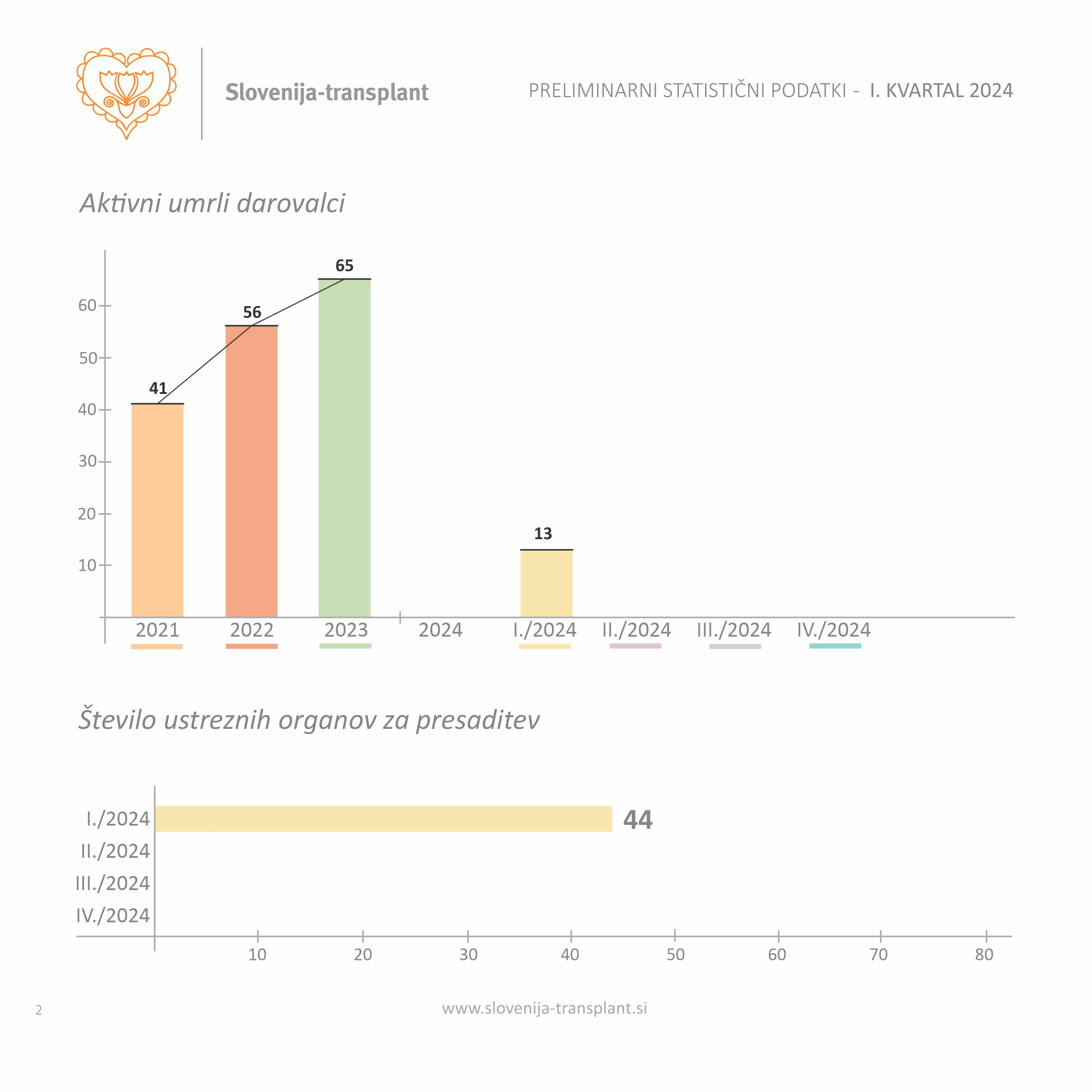
Spletno mesto uporablja piškotke za pravilno delovanje spletne strani in izboljšanje vaših izkušenj. Več informacij najdete v Politiki o piškotkih .
Darovanje organov je plemenito in prostovoljno dejanje. Z darovanjem nekomu omogočimo zdravljenje in življenje po naši smrti. Je gesta solidarnosti, znak človečnosti, zaupanja in notranjega miru, ko se odkrito soočimo z lastno minljivostjo in odnosom do soljudi.
Vsak ima pravico, da o darovanju organov odloča svobodno.

Zdravljenje s presaditvijo je uveljavljena, uspešna, za številne bolezni edina metoda zdravljenja. V Sloveniji imamo dostop do izjemno kvalitetnega zdravljenja. Na vrhunske strokovnjake in strokovnjakinje se v postopkih od darovanja do presaditve lahko zanesemo. Protokoli dela so pregledni, etično naravnani in strokovni.
Transplantacij ni brez darovanja organov. Zboli lahko vsak. Neznani darovalec_ka lahko reši življenje tudi nam ali našim bližnjim. Statistično je 3-krat večja verjetnost, da bomo sami potrebovali zdravljenje, kot da bomo po smrti darovali organe.





Ljudje smo telesna, čuteča in duhovna bitja. Življenje ob in po smrti si zamišljamo in razumemo na različne načine. Vsa večja verstva sveta podpirajo in spodbujajo prostovoljno darovanje organov, ki je plemenito dejanje in najvišja oblika ljubezni do sočloveka. Preberi stališča večjih verskih skupnosti v Sloveniji.
